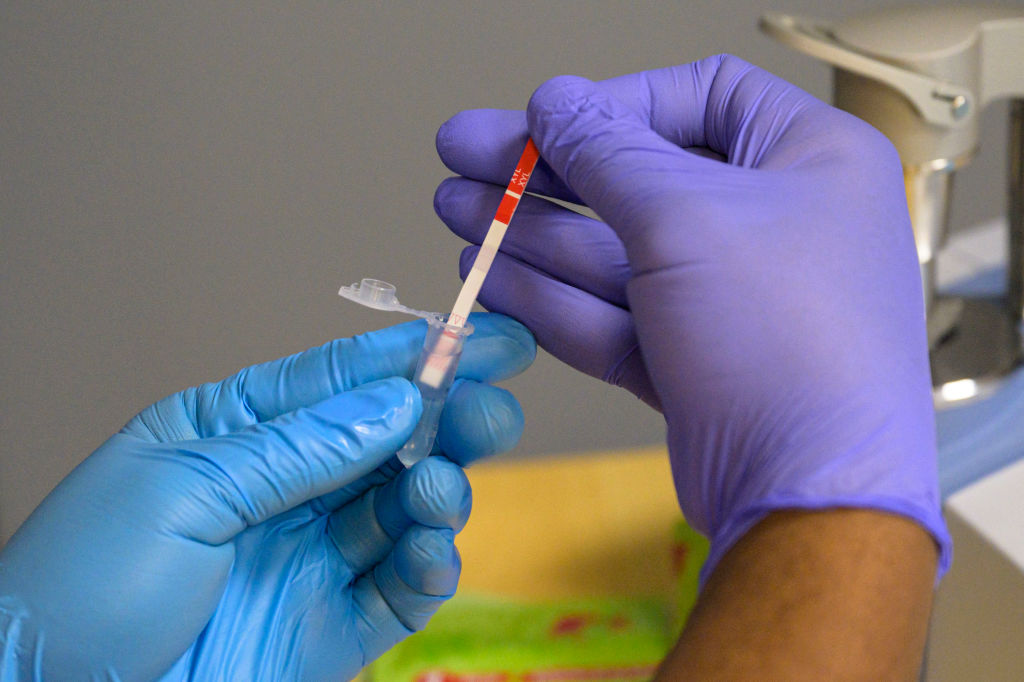Politics
Massachusetts Commission Explores Rising Threat of Xylazine in Drugs

The Massachusetts Special Commission on Xylazine convened on January 8 and 9, 2025, to address the alarming increase of the animal sedative xylazine in the state’s illegal drug supply. Formed under legislation signed by the governor in December 2024, the commission aims to develop recommendations to mitigate the public health and safety risks associated with this potent additive.
The meetings included a working group focused on education and training, which took place virtually on Monday, followed by a second session on outreach and treatment on Tuesday. Both sessions were designed to review background information and preliminary research about xylazine, which is also referred to as “tranq” or “tranq dope.” The drug is a non-opioid sedative primarily used in veterinary medicine and has not been approved for human use.
According to the Centers for Disease Control and Prevention (CDC), the combination of xylazine with fentanyl has emerged as a significant threat, prompting the White House’s Office of National Drug Control Policy to issue warnings in 2023. The sedative can severely depress the central nervous system, slowing brain function, breathing, and heart rate, which becomes particularly dangerous when mixed with opioids.
Data from the Street Check Community Drug Checking program indicates a dramatic rise in xylazine’s presence in drugs tested in Massachusetts. In 2020, the sedative was found in 9% of samples, but by 2024, that figure surged to 35%. Preliminary findings for 2025 suggest that xylazine has been detected in 21% of drug samples. Furthermore, a report from the Massachusetts Department of Public Health revealed that xylazine was present in nearly 11% of opioid-related overdose deaths in 2023. This figure increased to 22% in 2024.
The law that established the Special Commission on Xylazine originally required a report to be submitted by June 30, 2025, but a proposed amendment has pushed the deadline to March 2026. This extension highlights the complexities surrounding the ongoing drug crisis. Although opioid-related overdose deaths in Massachusetts declined by 36% in 2024, reaching their lowest levels since 2013, experts caution that the situation remains precarious. New substances like medetomidine and synthetic benzodiazepines continue to pose emerging threats within the illicit drug market.
The virtual hearings were accessible to the public via the Massachusetts Legislature’s official website, and they provided a platform for discussing urgent issues related to xylazine and its implications for public health.
As the state grapples with the evolving landscape of drug use and its consequences, the work of the Special Commission on Xylazine will be crucial in shaping effective responses to this growing crisis.
-

 Lifestyle4 months ago
Lifestyle4 months agoLibraries Challenge Rising E-Book Costs Amid Growing Demand
-

 Sports4 months ago
Sports4 months agoTyreek Hill Responds to Tua Tagovailoa’s Comments on Team Dynamics
-

 Sports4 months ago
Sports4 months agoLiverpool Secures Agreement to Sign Young Striker Will Wright
-

 Lifestyle4 months ago
Lifestyle4 months agoSave Your Split Tomatoes: Expert Tips for Gardeners
-

 Lifestyle4 months ago
Lifestyle4 months agoPrincess Beatrice’s Daughter Athena Joins Siblings at London Parade
-

 Science3 months ago
Science3 months agoSan Francisco Hosts Unique Contest to Identify “Performative Males”
-

 World4 months ago
World4 months agoWinter Storms Lash New South Wales with Snow, Flood Risks
-

 Science4 months ago
Science4 months agoTrump Administration Moves to Repeal Key Climate Regulation
-

 Business4 months ago
Business4 months agoSoFi Technologies Shares Slip 2% Following Insider Stock Sale
-

 Science4 months ago
Science4 months agoNew Tool Reveals Link Between Horse Coat Condition and Parasites
-

 Sports4 months ago
Sports4 months agoElon Musk Sculpture Travels From Utah to Yosemite National Park
-

 Science4 months ago
Science4 months agoNew Study Confirms Humans Transported Stonehenge Bluestones









